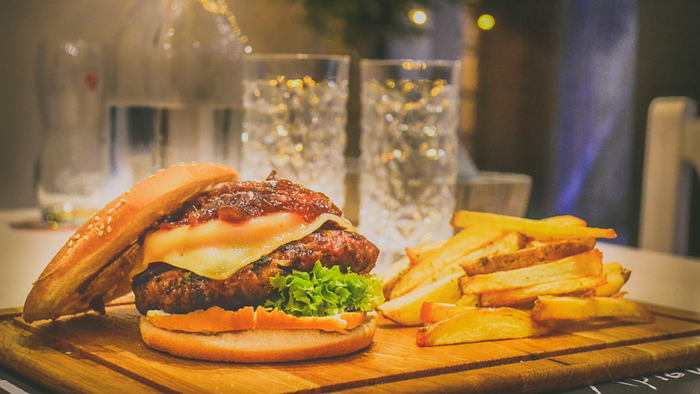7 Intermittent Fasting Mistakes That Make You Gain Fat

Intermittent fasting mistakes make you gain fat. It is not intended to make you gain fat, but rather balance your diet for whatever your goals are. You may want to lose fat or build muscle and intermittent fasting can help achieve either. It is a diet that follows time-restricted eating, where for a certain period of time, you eat and the other period, you fast. Most people undertake this diet with the intentions of losing fat, but never understand how to do it properly to achieve their goals and end up gaining fat. It is a great diet if you do it right.
1. Overeating During Your Eating Window

Overeating is when you eat past the point of being full which is quite common. It happens when you’re eating too fast, when you’re extremely hungry or you just want to finish your plate. Biological reasons such as increased hormonal activity (cortisol) due to stress or having an eating disorder will also lead to overeating. You must eat in your eating window as if you’re not fasting, so that your portions are controlled and ensure that you are not eating the wrong foods.
Overeating will lead to gaining fat because you will be eating in a calorie surplus.
2. Consuming Highly Processed Foods

Highly processed foods are usually high in calories, sugar, salt or other additives. They reduce the nutritional value of the food that you’re eating. They will also contribute to overeating because they may make you hungry again quickly due to a spike in your blood sugar and the portions are exaggerated. There is nothing wrong with consuming this food in balance like once or twice a week, but it must not be an every day thing.
3. Not Eating Enough

When you’re not eating enough your body starts going into survival mode where it will start storing as much of its energy reserves as possible, and this includes fat. This will make it more difficult to lose fatas your body takes time to adapt once it has started changing. Focus on balanced nutrition and when you’re hungry, eat a snack or a meal. Learn about and understand calories and macros, so that you know what your body requires to lose fat sustainably. You will also prevent your body from overeating or starving.
4. Fasting Too Aggressively

Starting out with intermittent fasting can lead to the mistake of doing the most extreme fast, because you may want the best results fast. This is a negative mindset because we all know that when you become extremely hungry, your first food option is the highly processed snack or meal and this is what fasting too hard will lead to. You must not let fasting be one of your biggest intermittent fasting mistakes.
There are different methods of intermittent fasting with their own benefits but choose from the following and see what works for you:
- Time-restricted: In a 24-hour day, you fast for either 16 or 12 hours and eating between the 8 or other 12 hours, respectively.
- Weekend fast: Eating normally from Monday to Friday and reducing your nutrition on the weekend to up to 1000 calories per day on Saturday and Sunday.
- 24-hour fast: You fast for a whole day at least once a week.
- Every-second-day fast: Eat normal one day and fast the following day.
5. Not Fully Fasting

Fasting requires you to not consume things that affect your calories negatively. You rely heavily on coffee and water while you fast. You start adding sugar, milk or cream in them and that is a problem. The more you consume them, the more calories they add to your diet. You will add a significant amount of calories to your body and you won’t lose fat. Drink your coffee black and add a minimal amount of sweetener, like maximum one teaspoon for taste. Drink your water with a slice of lemon or cucumber for added taste.
6. Inadequate Hydration

Water is essential in intermittent fasting because it has zero calories and will suppress your appetite. Sometimes, you may be thirsty but feel like you’re hungry and drinking water will fill that hunger. Drink water in between your meals instead of carbonated and sugary drinks. Drink at least two litres of water throughout the day for your body to get rid of waste and toxins. This will also help with digestion of your food.
7. Not Tracking Your Intake

Not tracking what you consume is one of the biggest intermittent fasting mistakes. Tracking will prevent you from gaining fat from any of the above mistakes. Knowing the calories and macros of what you eat and drink will help you know when you’re going over or under your requirements. Use MyFitnessPal as a guide and consistently eat nutritious food at least 80% of the time.
Intermittent fasting can be an effective dietary approach for achieving your desired goals, whether it’s fat loss or muscle gain. By avoiding common mistakes such as overeating, consuming highly processed foods, inadequate calorie intake, aggressive fasting, not fully fasting, inadequate hydration, and lack of tracking, you can maximize the benefits of intermittent fasting and achieve sustainable results. Remember to prioritize a balanced nutrition plan and make informed choices that support your overall well-being.
